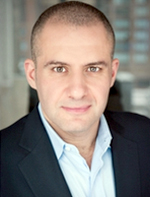 Ronn Torossian |
Other drug companies have done it. But other drug companies don’t have tens of millions of parents on social media whose children depend on their medication to survive. When parents went to their local pharmacy and learned the cost of the drugs their children needed had skyrocketed without warning — and for, in their minds, no good reason —the response was immediate and unbridled rage.
Suddenly, tens of millions who had never heard of Mylan knew who the company was … and they didn’t much like them. Then came the — so far unsubstantiated — rumor that Mylan’s CEO Heather Bresch gave herself a multimillion dollar raise last year. Substantiated or not, now the Mylan brand, a stranger only a few weeks ago, is in the running for most hated company in the country.
Bresch appeared on multiple TV media outlets, swearing up and down Mylan would take “immediate action” to make certain “everyone who needs an EpiPen has an EpiPen.”
Consumers weren’t buying, and interest in Canadian or generic alternatives shot up. If the company isn’t careful and if it doesn’t actually take “immediate action,” Mylan may find its customer base vanishing overnight.
So far, the company’s efforts don’t seem that interested in actually keeping its customers. The announcement that Mylan would be “doubling the eligibility for the patient assistance program” was met with frustrated raised fists, not exactly a warm embrace. Parents want more. And they know if Mylan isn’t willing to step up, then someone else will.
So Bresch went back to the drawing board and released this statement: “We recognize the significant burden on patients from continued, rising insurance premiums and being forced increasingly to pay the full list price for medicines at the pharmacy counter.”
But it’s far too late for finger pointing. Consumers have already chosen who to blame for this price increase. Pointing fingers at other players won’t win them over. In this case, in the court of public opinion, it doesn’t really matter who’s at fault, only who is perceived to be benefitting from this perceived problem. Based on the current narrative, Mylan is the problem, and Bresch is the beneficiary. Fair? Jury’s still out on that one, but in the interim, it doesn’t matter. If Mylan doesn’t do something drastic to gain the trust of their customer base, who did what will cease to matter at all.
***
Ronn Torossian is the CEO and founder of New York headquartered public relations agency 5W PR.


 PR firms need to be mindful of ways their work product may be protected by the attorney-client privilege whenever working with a client’s internal legal team or its external legal counsel.
PR firms need to be mindful of ways their work product may be protected by the attorney-client privilege whenever working with a client’s internal legal team or its external legal counsel. Manuel Rocha, former US ambassador and intenational business advisor to LLYC, plans to plead guilty to charges that he was a secret agent for Cuba.
Manuel Rocha, former US ambassador and intenational business advisor to LLYC, plans to plead guilty to charges that he was a secret agent for Cuba. CEO mentoring is an often-overlooked aspect of why CEOs are able to make good decisions, and sometimes make bad ones—all of which intersects with the role and duties of a board.
CEO mentoring is an often-overlooked aspect of why CEOs are able to make good decisions, and sometimes make bad ones—all of which intersects with the role and duties of a board.  How organizations can anticipate, prepare and respond to crises in an increasingly complex world where a convergent landscape of global challenges, threats and risks seem to arrive at an unrelenting pace.
How organizations can anticipate, prepare and respond to crises in an increasingly complex world where a convergent landscape of global challenges, threats and risks seem to arrive at an unrelenting pace. Why the best time for an organization to plan for a crisis is before the storm hits.
Why the best time for an organization to plan for a crisis is before the storm hits.


 Have a comment? Send it to
Have a comment? Send it to 
No comments have been submitted for this story yet.